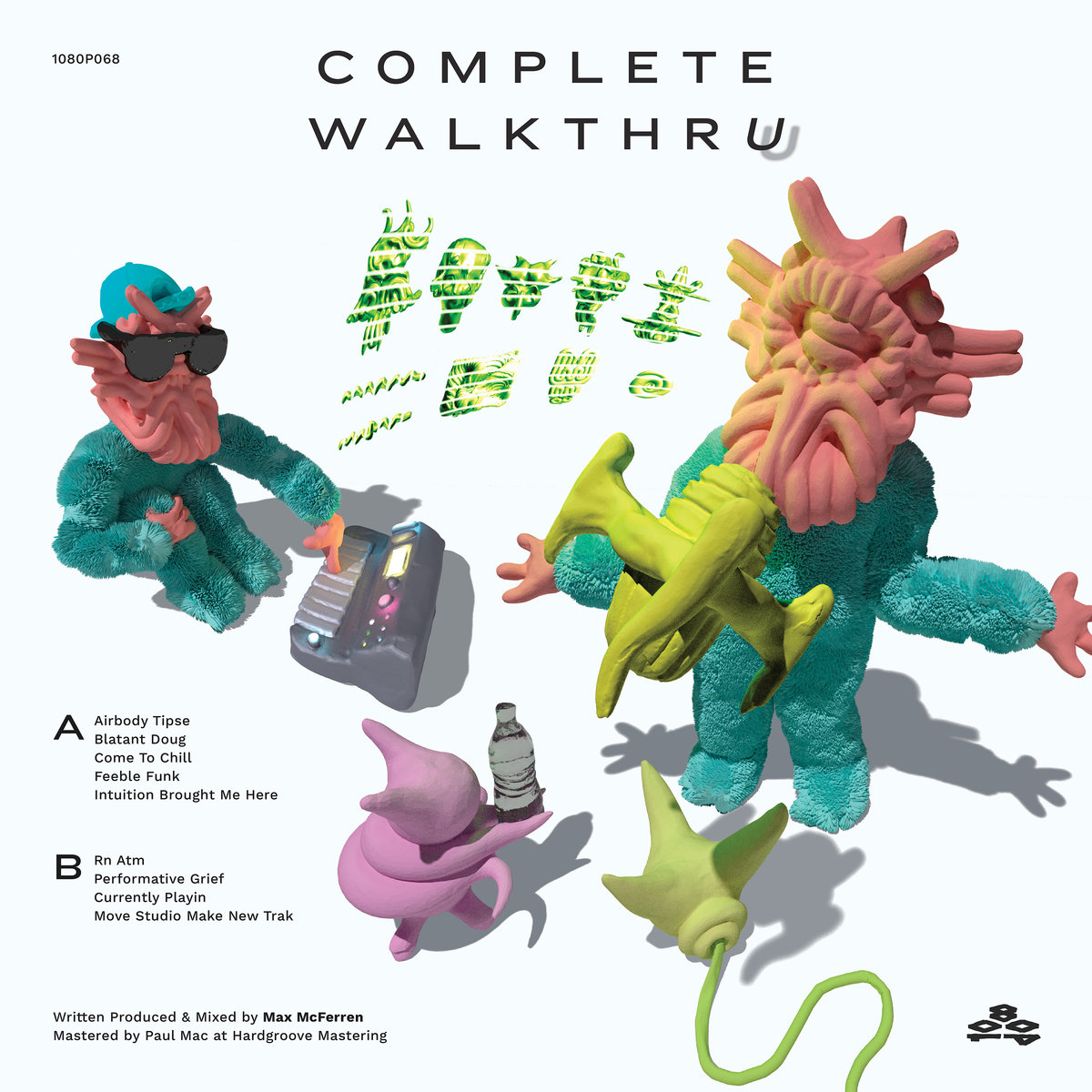The digital age is defined by transformative speed. Content is whirled about. Context is lost. Things are repurposed and reshaped. Access is universal. In the windswept world of the Internet, privacy is an antiquated accessory.
Vancouver-based label 1080p embraces and resists this whirling online world. While many contemporary underground electronic labels such as Moodhut, Going Good and PPU concentrate purely on physical releases, 1080p shies away from committing to a single medium. Releasing music both digitally and physically (cassette and vinyl), 1080p occupies a space both progressive and oddly traditional. They approach the decentralizing forces of the Internet with an understanding that music can be both public and private, easily accessible and yet personally exclusive (ie. a possession).
Falling within this 1080p ethos, Brooklyn-based Max Mcferren’s newest outing Complete Walkthru (released under the same name) straddles a line of public joviality and isolated melancholy. Upon first listen, each song appears programmed to illicit movement: drums beat, snares sputter and synthesizers fill the gaps in between. On tracks like “RN ATM,” Mcferren channels the energy of his house forebears. Reverb laden vocal samples akin to those used by Adonis and Frankie Knuckles weave in and out of the song while pulsing synths push along with abandon. These are the inviting sounds of a communal experience — the build up to a shared moment on some contorting dance floor.
Yet, underneath this party oriented accessibility lurks something somber. On tracks like “Performative Grief,” for instance, things are at risk of being washed away. The periodic swell of a few dark notes blot out the otherwise upbeat jangle. Similarly, on “Come to Chill,” the climatic drop is sparse, isolated and removed from the song’s proceedings. These moments are closer to the dark electronica of Demdike Stare, rather than Mcferren’s usual woozy house. As a result of this subtle sonic dissonance, the listener slides into a torn headspace, one that is celebratory but somehow introspective. People swirl all around to the pounding of a synthetic drum, but at any moment things can rupture. The balance can be thrown off. The song can end or be fully overwhelmed by a chorus of minor notes. And once again people will sink into isolation. Can one really dance in the face of such anxiety? Mcferren understands that accessible public music has merit. Yet, like 1080p, he acknowledges the far more substantial and lasting connection that comes with something intimate and personal.


